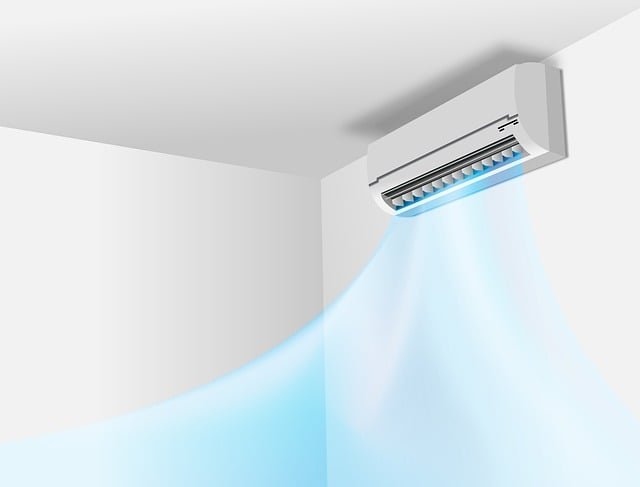
Air conditioners (ACs) are an essential part of modern living, providing comfort in hot climates and improving air quality. However, while ACs can be beneficial in several ways, improper use or lack of maintenance can lead to health issues. Below is a detailed breakdown of both the health benefits and side effects associated with air conditioners.
Health Benefits of Air Conditioners
1. Improved Sleep Quality
- Comfortable Sleeping Environment:
One of the major benefits of using an air conditioner is its ability to regulate the room temperature, providing a cooler and more comfortable environment for sleep. The body naturally cools down as part of the sleep process, and keeping the room temperature between 20°C and 22°C (68°F – 72°F) can help induce deeper sleep. - Prevention of Night Sweats:
In hot and humid conditions, excessive sweating during sleep can disrupt rest. ACs reduce both temperature and humidity, minimizing sweating and promoting a more restful, uninterrupted sleep cycle.
2. Reduced Risk of Heat-Related Illnesses
- Prevention of Heat Stroke and Heat Exhaustion:
ACs are essential in extreme heat conditions. Prolonged exposure to hot temperatures (above 40°C or 104°F) can lead to heat exhaustion or heat stroke, both of which can be life-threatening. Air conditioners regulate indoor temperatures to keep them at safe levels, preventing these heat-related conditions. - Prevention of Dehydration:
Excessive heat causes the body to sweat and lose fluids, potentially leading to dehydration. By maintaining a cool indoor environment, ACs help prevent excessive sweating and dehydration, which is crucial during hot summer months.
3. Improved Air Quality
- Air Filtration:
Modern air conditioners come equipped with filters that trap dust, pollen, pet dander, and other airborne pollutants. For people suffering from allergies, asthma, or other respiratory conditions, this filtration can significantly improve air quality by reducing irritants and allergens. - Reduced Humidity:
ACs not only cool the air but also reduce indoor humidity levels. High humidity can promote the growth of mold, mildew, and dust mites, all of which can trigger allergies and respiratory issues. By keeping humidity levels in check, air conditioners reduce these risks and promote cleaner, healthier air.
4. Increased Productivity and Comfort
- Enhanced Comfort at Work:
In hot and humid climates, working in an environment without air conditioning can cause discomfort, fatigue, and a lack of focus. ACs provide a more comfortable working environment, which can help improve concentration, reduce stress, and increase productivity in offices and workplaces. - Comfortable Social Interactions:
During social gatherings, meetings, or even in public spaces like malls and restaurants, air conditioning ensures that the temperature remains comfortable, promoting a more relaxed and enjoyable atmosphere.
5. Reduction in Asthma Attacks and Respiratory Issues
- Allergen Reduction:
Air conditioners can reduce exposure to airborne allergens, such as pollen, dust, and pollution, by filtering the air. This is particularly helpful for individuals with asthma, hay fever, or other respiratory conditions. Some modern air conditioners are equipped with HEPA filters that trap even smaller particles, improving indoor air quality. - Reduced Exposure to Outdoor Pollutants:
In cities or industrial areas where air pollution levels are high, an air-conditioned indoor environment provides a refuge from harmful pollutants like particulate matter (PM) and car exhaust, which can trigger asthma attacks or other respiratory issues.

Side Effects of Air Conditioners
1. Respiratory Issues
- Dryness of the Air:
While ACs improve comfort by cooling the air, they can also reduce indoor humidity. This can lead to dry air, which may irritate the nasal passages, throat, and lungs, especially for people with pre-existing respiratory conditions like asthma or chronic obstructive pulmonary disease (COPD). - Dry Skin and Mucous Membranes:
Prolonged exposure to the dry air created by ACs can lead to skin dryness, as well as dryness in the eyes and throat. This can cause discomfort, especially for individuals with sensitive skin or those prone to conditions like eczema or dry eyes. - Increased Risk of Respiratory Infections:
Air conditioners that are not regularly cleaned or maintained can harbor bacteria, mold, and fungi inside their filters. When the air circulates, these harmful microorganisms can be dispersed into the air, potentially causing respiratory infections or exacerbating conditions like allergies and asthma.
2. Dehydration and Skin Dryness
- Dehydration:
The dry air produced by air conditioners can lead to dehydration over time, as the body loses moisture through skin and breathing. This can lead to symptoms like dry mouth, dry skin, and fatigue. It’s important to drink plenty of water to stay hydrated while using air conditioners. - Dry Skin:
AC-induced dryness can cause skin irritation, including rough patches, redness, and peeling. If you are using AC for long periods, moisturizing the skin regularly can help counteract this effect.
3. Joint and Muscle Stiffness
- Cold Air Drafts:
Air conditioners often direct cold air towards specific areas of the room. If you are sitting or sleeping near the vents, prolonged exposure to cold air can lead to muscle stiffness or even joint pain. This is particularly problematic if the air conditioner is set at a very low temperature or the air is blowing directly on you for extended periods. - Increased Risk of Muscle Cramps:
In cool, dry environments, muscles may become tense or stiff, especially if you’re not moving much. This can lead to discomfort or muscle cramps.
4. Sick Building Syndrome (SBS)
- What is Sick Building Syndrome?
Sick Building Syndrome (SBS) refers to a set of symptoms that arise when spending prolonged periods in an air-conditioned environment with poor ventilation. The symptoms of SBS include headaches, dizziness, dry eyes, respiratory issues, and general fatigue. - Causes:
SBS is typically caused by poorly maintained air conditioning systems, which can circulate contaminants, such as mold, dust, gases, and bacteria, throughout the indoor environment. Inadequate ventilation in air-conditioned spaces can contribute to the buildup of these harmful particles.
5. Temperature Shock
- Sudden Temperature Changes:
Moving between air-conditioned rooms and hot outdoor environments can cause a temperature shock to the body. This sudden shift can lead to headaches, fatigue, and even cold-like symptoms, especially if the body struggles to adjust to the temperature difference. - Risk of Viral Infections:
Rapid temperature fluctuations can weaken the body’s defenses against infections, making individuals more susceptible to viruses such as the common cold or flu.
6. Overreliance on Air Conditioning and Mental Health
- Isolation and Depression:
Spending extended hours in air-conditioned, windowless rooms can lead to feelings of isolation. Lack of exposure to natural light and outdoor air has been associated with depression or seasonal affective disorder (SAD) in some individuals. - Lack of Vitamin D:
Sunlight is the primary source of Vitamin D, which is essential for mood regulation and overall health. A sedentary lifestyle inside air-conditioned environments, with limited outdoor exposure, can result in Vitamin D deficiency.
Tips to Minimize Negative Health Effects
- Regular Maintenance:
Ensure that your air conditioner is serviced regularly. Change or clean filters every 1-3 months to prevent the buildup of dust, mold, and bacteria. This will help improve air quality and reduce the spread of allergens. - Use a Humidifier:
If your air conditioner makes the air too dry, consider using a humidifier to maintain a comfortable level of humidity in the room. This will prevent skin and respiratory dryness. - Optimal Temperature Settings:
Set the temperature of the AC between 24°C to 26°C (75°F – 78°F). Extremely low temperatures can cause discomfort and muscle stiffness. Also, avoid sudden temperature changes when moving between indoor and outdoor environments. - Stay Hydrated:
Drink plenty of water to counteract the dehydration effects of air conditioning. This will help maintain hydration levels and prevent dry skin and eyes. - Take Breaks:
If you are spending long hours in an air-conditioned room, take regular breaks outdoors to get fresh air and expose your body to natural light. - Moisturize:
Use a good quality moisturizer to protect your skin from drying out. This will help prevent skin irritation and dryness caused by the air-conditioned environment.
Conclusion
Air conditioners provide a host of benefits, including temperature regulation, improved air quality, and comfort. However, when overused or poorly maintained, they can lead to a range of health side effects, including respiratory issues, dehydration, and muscle stiffness. By following basic maintenance practices, ensuring proper hydration, and managing temperature settings,
1. How does an air conditioner affect your health?
Short Answer: Air conditioners can improve comfort, reduce heat-related illnesses, and improve air quality. However, they can also cause dryness, dehydration, and respiratory issues if not maintained properly.
2. Are air conditioners bad for your skin?
Short Answer: Yes, air conditioners can cause dry skin by reducing humidity in the air, which can lead to irritation, flakiness, and dehydration.
3. Can air conditioners cause allergies?
Short Answer: Air conditioners can trigger allergies if filters aren’t cleaned regularly, as they may spread dust, mold, and other allergens into the air.
4. Is it healthy to sleep with the air conditioner on?
Short Answer: Sleeping with an AC on can improve sleep quality by maintaining a comfortable temperature. However, if the air is too dry, it can cause dehydration and dry skin. It’s important to maintain moderate humidity levels.
5. Can air conditioning make you sick?
Short Answer: Yes, if the AC is not properly cleaned, it can spread germs, mold, and bacteria, leading to respiratory infections or “Sick Building Syndrome” symptoms like headaches, fatigue, and dry eyes.
6. Is it safe to stay in an air-conditioned room all day?
Short Answer: Staying in AC all day can lead to dehydration, dry skin, and muscle stiffness. It’s important to take breaks and stay hydrated.
7. How can I prevent dry skin from air conditioning?
Short Answer: To prevent dry skin, use a moisturizer, keep indoor humidity at a comfortable level, drink plenty of water, and avoid prolonged exposure to cold AC air.
8. Can air conditioning cause asthma attacks?
Short Answer: Air conditioning can worsen asthma if the system is dirty or if allergens are circulating through the filters. Regular maintenance and clean filters can reduce this risk.
9. Does air conditioning help with asthma?
Short Answer: Yes, air conditioning can help reduce asthma symptoms by filtering out allergens like pollen, dust, and mold, especially when the AC uses HEPA filters.
10. Why does air conditioning make my joints hurt?
Short Answer: AC can cause muscles to stiffen if exposed to cold air for long periods, leading to joint pain or stiffness, especially in cold, dry environments.
11. Is air conditioning good for health?
Short Answer: Air conditioning is good for health when it helps regulate temperature and reduces humidity. It can prevent heat-related illnesses and improve air quality. However, it can cause dehydration and respiratory issues if not properly maintained.
12. How often should I clean my air conditioner?
Short Answer: You should clean your air conditioner’s filters every 1-3 months, and have a professional maintenance check at least once a year to ensure it operates efficiently and safely.
13. Can air conditioning cause headaches?
Short Answer: Yes, if the air is too dry or the temperature fluctuates rapidly, it can cause headaches or migraines, particularly in sensitive individuals.
14. Does air conditioning help with humidity?
Short Answer: Yes, air conditioners reduce indoor humidity by cooling the air, which can help prevent mold growth and keep the indoor environment comfortable.
15. How do I avoid getting sick from air conditioning?
Short Answer: To avoid getting sick, clean your AC regularly, ensure proper ventilation, maintain a moderate temperature, and stay hydrated to prevent dryness.







